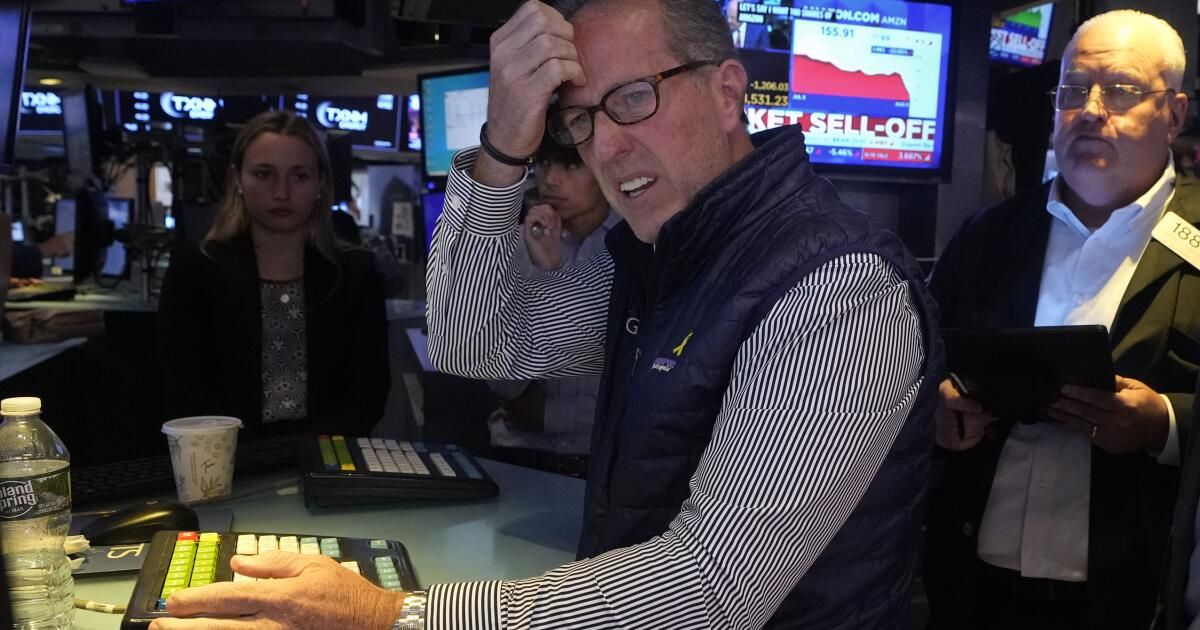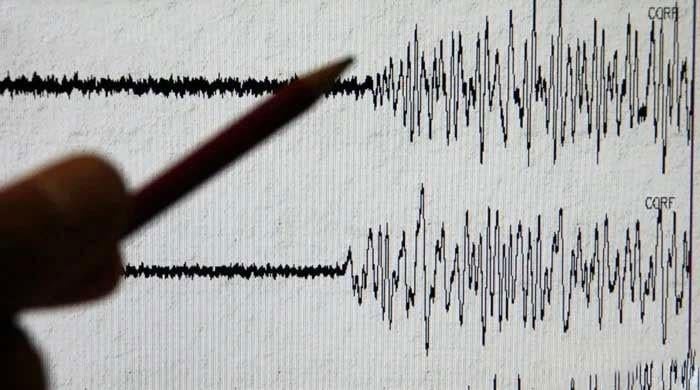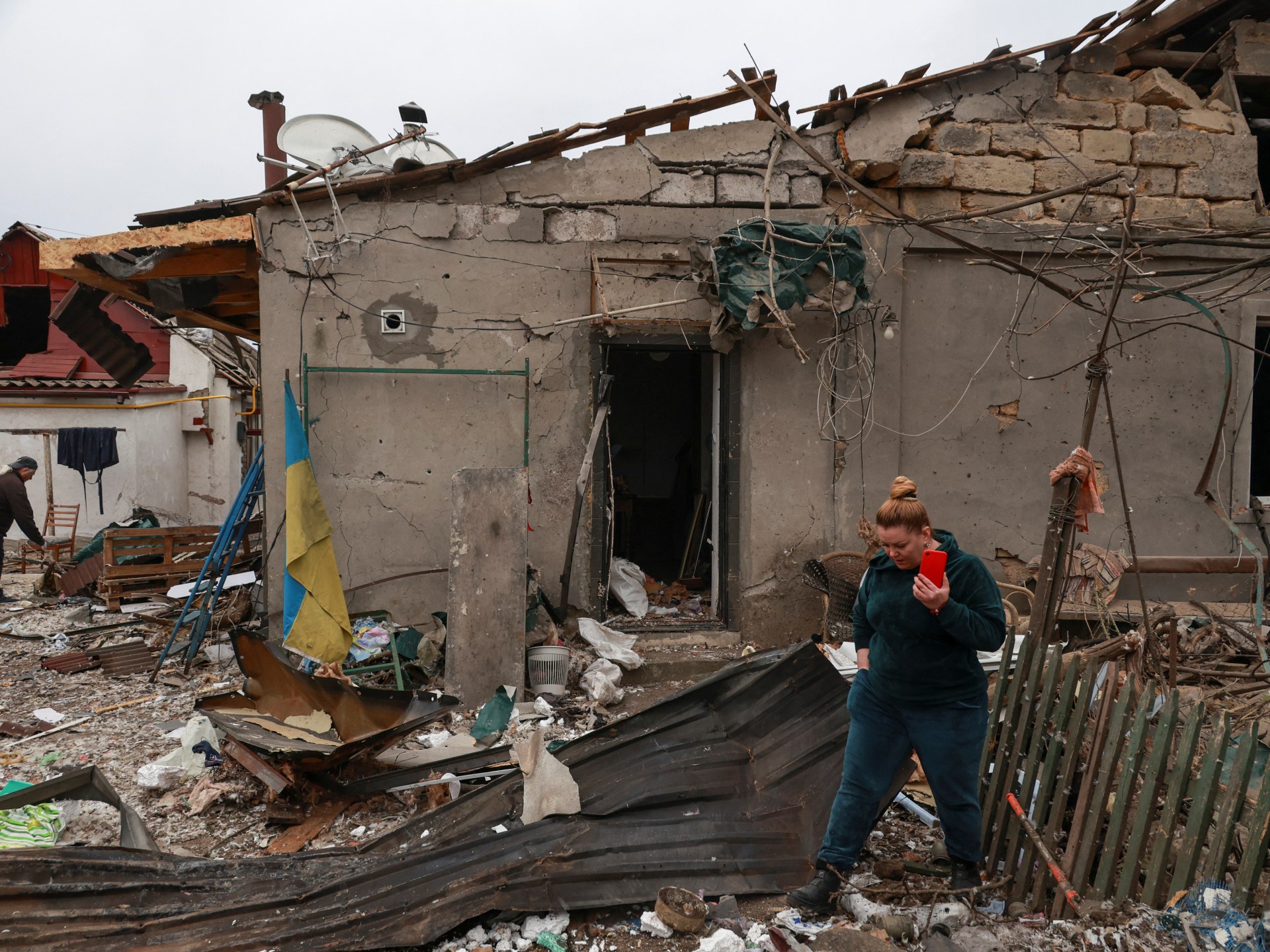It's a nail-biting moment on Wall Street.
Stocks had been falling at a worrying rate for several days, but on Monday the situation went from worrying to alarming. At one point, the Dow Jones Industrial Average plunged more than 1,200 points, on a day when stock markets around the world plunged. It closed down 1,034 points, or 2.6%.
Technology stocks have been hit particularly hard lately: The Nasdaq Composite Index briefly fell more than 10% on Monday since the middle of last week, entering what economists euphemistically call “correction” territory.
The sudden pullback has rattled investors and raised questions that go beyond financial markets to questions about the underlying health of the economy.
And even when things normalize, the window-shaking recession threatened to kill the political euphoria that gripped Democrats since President Biden withdrew and Vice President Kamala Harris emerged as the party's standard-bearer.
What has happened and what might happen next? Here are preliminary answers to some of the crucial questions:
What is causing the current decline in US stock markets?
Economists point to several factors behind the sell-off. For starters, tech stocks looked overvalued, pushed beyond their underlying value by the artificial intelligence craze. Hence the Nasdaq correction. Nvidia, Apple and Intel were among Monday's big losers.
And Friday’s jobs report, which showed a marked slowdown in hiring and unemployment in July, unnerved investors, even those not very familiar with the tech sector. That came on the heels of news that jobless claims, a proxy for layoffs, rose significantly in the final days of July.
It has not helped that the Federal Reserve has been reluctant to start cutting interest rates, which has limited inflation as intended but has also hurt businesses and consumers.
Then there is the knock-on effect on global markets. On Monday, once-booming Japanese stocks suffered their worst setback since Black Monday in 1987. The huge losses were seen in part as a reaction to market declines and growing concerns in the United States.
“It's an unfortunate sequence of events that leads to selling, selling and more selling,” said Christopher Rupkey, chief economist at Fwdbonds, a research firm in New York.
How have US stock markets generally performed this year?
Even with Monday's panic selling, stocks overall are up for the year, way up.
Both the Standard & Poor's 500 and the Nasdaq are still up more than 9% compared with the start of the year. The Dow is the laggard, up just 2.6% since Jan. 2.
Stocks have benefited from strong corporate earnings, investor enthusiasm about the growth and potential of AI and expectations of interest rate cuts from the Federal Reserve, said Mark Zandi, chief economist at Moody's Analytics.
“At this point, this is still a run-of-the-mill correction,” Zandi said of the current crisis, though he added that the situation merits close monitoring. “Things can take on a life of their own.”
Should I be worried about a recession?
Not yet, maybe never.
The classic definition of a recession is two consecutive quarters of falling gross domestic product. The latest, second-quarter GDP, after adjusting for inflation, was a solid 2.8%.
Almost all economists agree that there can be no recession without job growth turning negative for an extended period. And the U.S. economy is nowhere near that point.
Employers have added jobs every month since January 2021, when the economy began to recover from the pandemic. Most recently, in July, job growth was below expectations, but with 114,000 new hires, that figure remains solidly positive.
“I don't see the underpinnings of an economic downturn,” said Jack Ablin, chief investment officer and founding partner of Cresset Capital.
Can anything be done to stop the fall in values?
To stem the sell-off, some investors have urged the Fed to cut interest rates now, in a sort of emergency measure ahead of the central bank's next meeting scheduled for mid-September.
Federal Reserve officials have taken similar steps before, during the pandemic and the Great Recession, for example. But analysts doubt authorities will intervene unless markets continue to falter badly; making an emergency cut could make things worse by scaring people and causing a market crash.
“It's certainly not a hair-on-fire moment,” Zandi said.
What are the risks in the future?
With more people worried about the economy, further declines in the stock market could erode confidence among businesses and consumers, leading to a contraction in hiring and spending. That would be a psychological phenomenon, but economies are not immune to the fears or hopes of their human components.
Consumer spending, the engine of the U.S. economy, has held up remarkably well in recent years, thanks to steady growth in employment and wages. But there are signs that companies such as McDonald's and Starbucks are becoming more cautious.
Higher-income households account for a disproportionately large share of spending, which has been supported by rising house and stock prices. A sharp fall in stocks would have the opposite effect, the so-called negative wealth effect, making richer households more reluctant to spend, potentially leading to a recession.












